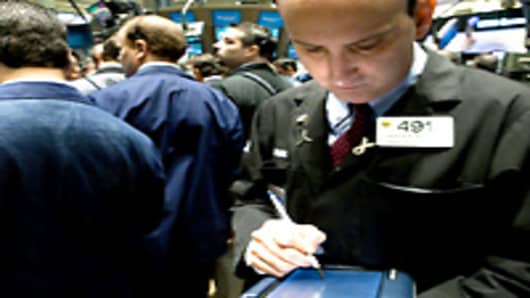Corporate hedging, the science of locking in predetermined prices to insure against future, has been around since at least the 1980s.
But a combination of global diversification over the last decade and a rash of geopolitical events from Japan to Libya are causing many companies to reemphasize the importance of their hedging, say traders and corporate executives.
"Corporate managements are looking at ways to control what they can," says Thomas Deas, Jr., treasurer of the chemical company FMC Corp. and president of the National Association of Corporate Treasurers. "If you can take certain things off the table and control (them), then you can concentrate your energies on things that pop up, that you have to deal with when they arise."
The vast majority of corporate hedges are used to even out the prices of interest rates and commodities, according to a recent Treasury & Risk Magazine survey that polled roughly 200 executives, with 65 percent of respondents using derivatives to hedge the former and 62 percent using the instruments for the latter.
But the companies polled are also active in resources hedging—with 23 percent saying they use derivatives to hedge commodities, and an additional 19 percent using them to hedge energy prices. With crude oil hovering at close to $110 per barrel, and continuing tumult in the Middle East threatening to further pinch supplies, that’s no surprise.
Hedging, in principle, is a relatively simple endeavor. In essence, a company selects a price for a currency or commodity—such as the yen or a barrel of oil—and pays a bank for the right to buy at the price some time in the future. Such bets on future price levels can create significant savings if the cost of a currency, commodity or rate spikes unexpectedly, dramatically increasing the cost to a company that hasn’t already locked in a lower price level.
But hedging tends to require two things: advance planning and, usually, cash. In order to lock in a set price, companies must predict where they expect an entity to trade, either through independent analysis or using current market levels. Even choosing a current “spot” price for a commodity—that commodity's price on the open market, which provides the basis for options on that commodity as well—can imply some confidence in the rationality of that market’s pricing.
And to fund its hedges, a company must have either enough cash to purchase options—the right to buy or sell an entity in the future at a set price—or good enough credit to convince a counterparty, usually a bank, to enter in to a trade, or swap, that may require a big payoff in down the road.
In foreign-exchange circles, geopolitical upheaval in Europe and Japan have thrown a spotlight on the euro and the yen, already among the world’s most liquid currencies.
The tsunami, earthquake, and nuclear disasters that befell northern Japan last month paved the way for astonishing volatility in the yen—a sharp dip followed by an unexpected rally. The yen’s upswing raised uncomfortable questions for the country’s big exporters, like Honda and Toyota, but benefited U.S. corporations that were long the currency.
“Most U.S. corporates are long yen, short dollars. So this move has actually been very good for them,” said Russell Francis, Citigroup’s head of North American corporate currency sales, in a recent interview. Companies are now taking the yen’s surprise rise, he added, as an opportunity “to put on some slightly longer-dated hedges,” reflecting longer-term skepticism toward the currency’s prospects.
Those trades may be paying off already, as the yen has slid markedly this week.
A continent away, the European debt crisis continues to roil companies and investors, as questions persist about how and whether the euro zone’s stronger economies, like Germany and France, will bail out the weaker, or peripheral, ones.
Going in to 2011, concerns about volatility in the euro was one of corporations’ top concerns, according to a Citigroup study, published late last year, that surveyed more than 300 non-financial global companies.
Follow Kate on Twitter: @katekellycnbc



